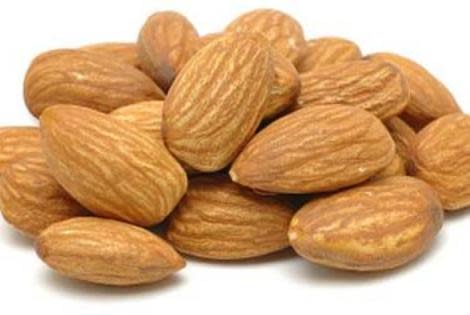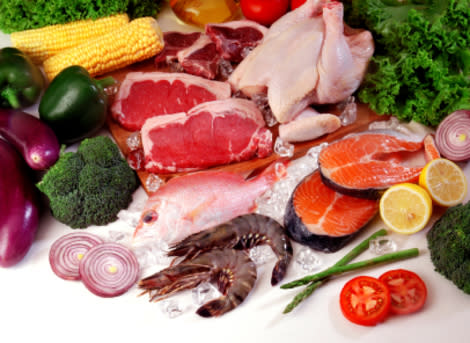The Power of Protein
By GalTime's Nutritionist, Elisa Zied, MS RD CDN

We all know that protein is vital for good health, but did you know that national surveys show that adolescent females and some older women are not meeting their daily protein needs? Protein helps repair and build muscle tissue. It helps create hormones and enzymes in your body. It also helps fill you up at meal time.
Did you know that if you cut calories to lose weight and you're not getting enough protein, you're going to lose more muscle tissue than you would otherwise? And it's that muscle tissue that keeps your metabolism revved up...

So what do you do? Just make sure to include protein rich foods every time you eat.
Related: Eating Free: A Carb Friendly Diet Plan?
Protein Rich Foods
1. Plant foods such as beans and nuts. These foods are also a good source of fiber.
2. Meat. The healthiest choice is lean meat that is low in saturated fat.
3. Fish is an excellent source of protein. Studies have shown that the oils contained in fish may help protect against heart disease.
4. Dairy Foods. Again, opt for low-fat versions when possible.
5. Eggs are also abundant in protein, although they also contain dietary cholesterol.
Load up on plant foods like beans, nuts and seeds. Keep portions of these protein-rich foods small, but have them frequently throughout the week. Make sure when you choose dairy foods and meats that you select the leanest, lowest fat options possible.
Related: Are Egg Whites Really Better for You?
That way you'll have your protein, you'll enjoy it, and you'll stay energized.
Age, gender | Protein (grams/day) |
Infants | |
0-6 mo | 9.1 |
7-12 mo | 11 |
Children | |
1-3 years | 13 |
4-8 years | 19 |
Males | |
9-13 years | 34 |
14-18 years | 52 |
19-30 years | 56 |
31-50 years | 56 |
51-70years | 56 |
> 70 years | 56 |
Females | |
9-13 years | 34 |
14-18 years | 46 |
19-30 years | 46 |
31-50 years | 46 |
51-70years | 46 |
> 70 years | 46 |
Pregnancy | |
14-18 years | 71 |
19-30 years | 71 |
31-50 years | 71 |
Lactation | |
14-18 years | 71 |
19-30 years | 71 |
31-50 years | 71 |
Source: Dietary Reference Intakes for Energy, Carbohydrate, Fiber, Fat, Fatty Acids, Cholesterol, Protein, and Amino Acids (Macronutrients) (2005) National Academy of Sciences. Institute of Medicine. Food and Nutrition Board. | |
More from GalTime.com:
